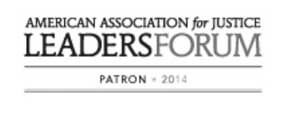Five Questions You May Have About Concussions

A concussion is caused by a blow to your head and affects the way your brain functions. Symptoms may include headaches, problems with concentration, memory issues, and difficulty with balance and coordination. While these symptoms are usually temporary, concussions may have permanent and lasting effects. You are at higher risk of suffering a concussion if you engage in contact sports, are involved in a vehicle collision, have a heavy object fall on your head, or fall and hit your head.
Here are five questions you may have about concussions.
1. Is a Concussion a Brain Injury?
A concussion is defined as a traumatic injury that affects brain functioning. The most common cause is a direct blow to the head. Falls and contact sports such as football, soccer, and hockey are common causes of concussions. Being in a car, bicycle, or pedestrian collision often results in a concussion. If you have previously suffered a concussion, you are at higher risk of suffering one in the future. Brain injuries are serious and you must receive appropriate medical treatment to ensure that you properly heal.
2. Is a Concussion Serious?
Even though it seems like concussions are common injuries, they should be taken seriously. A concussion occurs when your brain slams against the inside of your skull. The brain has a jelly-like consistency and can be easily damaged. Fortunately, our brains are surrounded by cerebrospinal fluid that helps protect the brain from moving around in your skull. However, heavy blows to the head result in the brain sliding forward, backward, or to the side and hitting the inside of your skull, which is made of hard bone.
The brain is the most important part of the body because it controls thinking, breathing, movements, and other involuntary bodily processes. Unsurprisingly, serious trauma to the brain must receive immediate and urgent medical care.
What are the Symptoms of Concussions?
Signs of a concussion may be immediate but can also take hours or even days to appear. Symptoms include physical signs such as fatigue, dizziness, sensitivity to light and noise, blurry vision, headaches, nausea and vomiting, and ringing in the ears.
Mental symptoms may include amnesia, confusion, loss of consciousness, forgetfulness, slurred speech, difficulty concentrating, memory problems, and depression.
Individuals suffering from a concussion may also experience difficulty sleeping within the days following the cause of the concussion.
4. How Can You Detect Symptoms of a Concussion in Children?
Typically, young children cannot communicate how they are feeling. This makes identifying concussions in babies and toddlers difficult. Parents must be vigilant.
Signs parents should look for in their children if they suspect or have reason to believe their children may have a concussion include excessive crying, irritability, listlessness, unusual balance problems, changes in eating or sleeping, vomiting and nausea, and loss of interest in toys or games. If you notice these signs in your child, especially after your child may have experienced a blow to the head from a fall or a toy being thrown, you should take your child to seek medical attention to guarantee that your child is receiving proper care and treatment.
How Long Does a Concussion Take to Heal?
The majority of concussions resolve within seven to fourteen days. If symptoms of your concussion last longer than one or two months, you may have what is called Post-Concussion Syndrome (PCS). PCS has many of the same symptoms as concussions. People who have PCS may also experience anxiety and depression.
Because concussions are brain injuries, you must take time to allow your body to heal and gradually ease back into your normal physical, social, and work activities. You should resume normal activities only once your doctor has told you it is safe to do so. When you are recovering from a concussion or PCS, you should consult with your doctor to ensure that you are following your treatment plan and ask your doctor any questions about new or worsening symptoms. While concussions seem like a common injury, they should not be taken lightly. If you have experienced a concussion or PCS as a result of someone else’s negligence, speak with an experienced brain injury attorney to protect your rights.
Seek Advice from a Chicago Brain Injury Attorney
If you or a loved one has suffered a brain injury or concussion due to the negligence of another, the Vinkler Law Offices brain injury attorneys are ready to help. For more than 25 years, our skilled team of lawyers has been litigating brain injury cases and achieving victories for victims of brain injuries and their families. You can rest assured that the Vinkler Law Offices attorneys will handle all aspects of your case, giving you peace of mind and allowing you to focus on your health and your family. Contact us today for a free consultation and case review.
Schedule Now Form with Buttons
Complimentary Case Review Available Now





